Search
Search Results
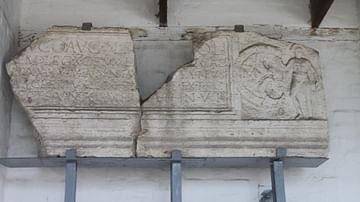
Article
Legions of Syria
The Roman legions of Syria served as a buffer, protecting the Roman Empire not only externally from such threats as Parthia and the Sasanian Empire but also internally during the Great Jewish Revolt of 66 CE and the Bar-Kochba Revolt (132-135...

Article
Caesar As Dictator: His Impact on the City of Rome
Gaius Julius Caesar (100-44 BCE) first assumed the role of dictator in 49 BCE, however, once he had secured his election as consul for the following year, he resigned after 11 days. After defeating Pompey at the Battle of Pharsalus in 48...
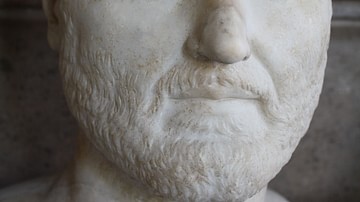
Definition
Gordian Emperors
When Maximinus Thrax was named Roman emperor upon the death of Alexander Severus, the news was not well-received by many in Rome and the Roman Senate considered him an illiterate barbarian. His financial excesses, principally used to fund...
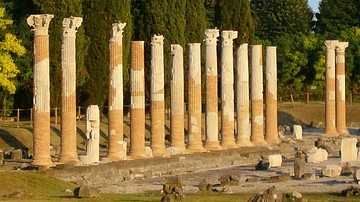
Definition
Aquileia
The ancient city of Aquileia was situated near the head of the Adriatic Sea west of the Roman province of Illyria. The strategic location of the city served a crucial role in the expansion of the Roman Republic by serving as a buffer against...

Article
The Propaganda of Octavian and Mark Antony's Civil War
Propaganda played an important role in Octavian (l. 63 BCE - 14 CE) and Mark Antony's (l. 83 – 30 BCE) civil war, and once victorious at the Battle of Actium (31 BCE), Octavian returned home to become the first Roman emperor. The decade preceding...

Definition
Hadrian
Hadrian (l. 78-138 CE) was emperor of Rome (r. 117-138 CE) and is recognized as the third of the Five Good Emperors (Nerva, Trajan, Hadrian, Antoninus Pius, and Marcus Aurelius) who ruled justly. His reign marked the height of the Roman Empire...
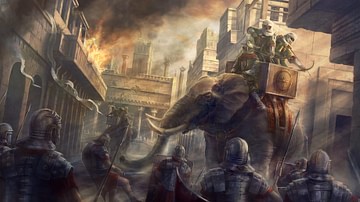
Definition
Second Punic War
The Second Punic War (The Hannibalic War) was fought between Carthage and Rome between 218 and 201 BCE. The war involved confrontations in Spain, Italy, Sicily, Sardinia, and North Africa. Hannibal led the Carthaginians, one of the most gifted...

Definition
Spartacus
Throughout history - both ancient and modern - those bound in chains have fought to free themselves from their oppressors. As with most civilizations - Assyrian, Greek and even American - slaves in ancient Rome were not considered citizens...

Definition
Cicero
Marcus Tullius Cicero was a Roman orator, statesman, and writer. He was born on 3 January 106 BCE at either Arpinum or Sora, 70 miles south-east of Rome, in the Volscian mountains. His father was an affluent eques, and the family was distantly...
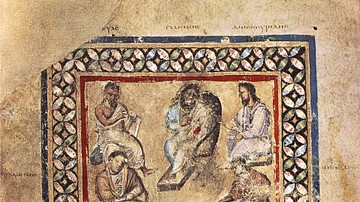
Definition
Galen
Galen (129-216 CE) was a Greek physician, author, and philosopher, working in Rome, who influenced both medical theory and practice until the middle of the 17th century CE. Owning a large, personal library, he wrote hundreds of medical treatises...